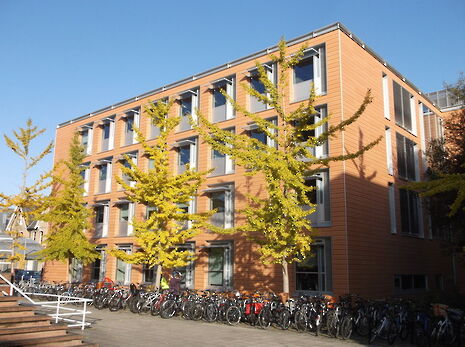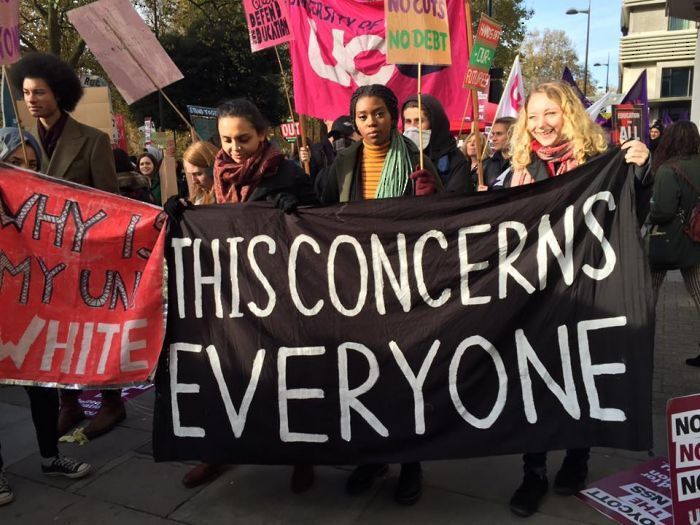English and History prelims set to be scrapped for future cohorts
After 2021, no first-year historians or Englings will sit prelims

In a landmark decision on Tripos reform, Cambridge’s History and English faculties have confirmed that future first year students will no longer sit preliminary examinations, commonly known as ‘prelims’. Students will instead sit Part IA exams at the end of their first year.
The first English students who will sit Part IA exams rather than prelims will be those matriculating in October 2020, while the History Faculty will implement its revised Tripos structure beginning with students matriculating in October 2021.
Dr Emma Spary, Academic Secretary at the History Faculty, said that the Faculty’s proposal to reform Part I, including dividing it into a Part IA and Part IB, “has passed through several university committees and has now been approved.”
Professor Peter De Bolla, Chair of the English Faculty, told Varsity that the decision to scrap prelims was passed unanimously by the Faculty Board, and approved by the Council of the School of Arts and Humanities, followed by the General Board’s Education Committee.
The changes are expected to carry several benefits, as De Bolla said that the reforms will “reduce the number of examinations that English students sit across their first and second years” from the current eight to six, as the two prelim papers will not be repeated in second year. Spary said that “intermitting students will no longer face problems in how their marks on papers stretching over two years are carried forward”.
The reform raises the question of how teaching will change in Easter Term of first year in History and English. History students are expected to complete a normal term’s worth of work after sitting prelims in week zero. English students spend the easter term of their first year solely studying the works of William Shakespeare in a typical arts course structure focused around supervision essays – De Bolla said that “teaching of Shakespeare will be largely unaffected”.
Spary said that while teaching plans were “currently under active discussion”, the Faculty expected “an increase in quality and interest of the teaching overall”, with the introduction of an “exciting and up-to-date range of new papers and themes”. She added that “the aim is to minimise or completely avoid any reduction in contact hours for each individual student”.
Kate Litman and Howard Chae, undergraduate representatives to the History Faculty Board, said they were “supportive of the move to phase out prelims, as it forms part of a much larger programme of Tripos reform”, including a “reduced emphasis on examination and a move towards more diverse modes of assessment”, as well as “more opportunities to study world history”.
While Litman and Chae said that “it is very difficult to make generalisations that everyone will agree with”, they added that “there is a broad consensus that second year is very challenging for history students” sitting all Part I exams at once, and so “the proposed Tripos reforms will make the course workload more manageable, especially in first year”.
Their only concern is that “prelims provide excellent and detailed feedback for students on examination performance”, which they hope to preserve in the reforms by raising the issue with the Faculty committees they sit on.
Marcus Ansley, an undergraduate representative to the English Faculty Board, remarked that “it’s really important students get a taster of what exams are like here within their first year”. He told Varsity that the reforms are likely to “mean that students will complete a portfolio by the end of their first year, which should offer students some teaching and practice in terms of drafting, referencing, and submitting coursework” – useful practice for a dissertation.
“There is an argument that prelims allow students to practice exam technique without too much emphasis being placed on results”
The other undergraduate representative to the English Faculty, Alex Jacob, said the new exam structure “is indicative of a step towards a more evenly-weighted Tripos, whereby all three years of work contribute to the overall grade”, and that it would reduce pressure later on in the course. He added that “there is an argument that prelims allow students to practice exam technique without too much emphasis being placed on results”, but that the new Tripos structure provides its own benefits, including alleviating pressure in later years.
Jacob said that him and Ansley were “consulted by the Director of Undergraduate Studies” in the English Faculty, and “were invited to join in discussions which occurred at the Faculty Board”. They therefore felt they were provided “with significant opportunity to contribute to these decisions to which we both assented”.
History undergraduate representatives met with Dr Nicholas Guyatt, a reader in North American history, “to discuss the proposed changes, and were aware of the plan to phase out prelims”, and supported the proposed changes.

The experiences of students who sat prelims this year vary widely. Cecily Bateman, a first year historian at King’s, said she “enjoyed prelim term in the same way [she enjoys] a normal Cambridge term”. Although she noted difficulties over the examination period, when “your friends become hermits, and extracurricular activities stop”, she found that she “liked getting it all over early and quickly.”
While Bateman said she was nervous about “a proper exam term with no structure at all” next year, she found that sitting the same paper twice has made her feel more confident in her ability to improve.
Miguel Roe, a first year historian at Pembroke, echoed Bateman’s sentiment of being “happy to get the stress of exams out of the way early”, but said that having prelims meant he was “exhausted for Easter Term”, and that he found it “quite disjointing to be on a different schedule to the rest of the University”.
“I was expected to read 15 Shakespeare plays over the holiday while also preparing for our two 3 hour exams.”
A first year English student, who wished to remain anonymous, said sitting exams at the beginning of term made it “hard to stay focused as it was difficult to switch from exams straight back into a normal teaching term”.
They also found that trying to revise over the holidays was complicated by the fact that they were “expected to read 15 Shakespeare plays over the holiday while also preparing for our two three-hour exams”.
Shameera Lin, a first year English student at Lucy Cavendish, said she found the system “counterproductive”, with the comments attached to her papers “hardly useful”. She also said “jumping into work right after prelims” made her “entire Shakespeare term more stressful”.
Another first year English student, who is transferring into the first year of another arts subject next year, was left frustrated by his prelims experience. Despite achieving a high grade in his English prelims, he felt that “all the work and stress, technically and officially counts for nothing”.
He was told that the English prelims themselves as a practice were not considered “enough of an academic standard” to transfer directly into the second year of another subject, as other arts students who had sat Part IA exams may have been able to.
He also criticised the pressure to fit “a normal term’s worth of revision”, encompassing an entire academic year, into a five week Easter holiday period.
 Comment / College rivalry should not become college snobbery30 January 2026
Comment / College rivalry should not become college snobbery30 January 2026 News / Downing Bar dodges college takeover31 January 2026
News / Downing Bar dodges college takeover31 January 2026 News / Cambridge for Palestine hosts sit-in at Sidgwick demanding divestment31 January 2026
News / Cambridge for Palestine hosts sit-in at Sidgwick demanding divestment31 January 2026 Science / Meet the Cambridge physicist who advocates for the humanities30 January 2026
Science / Meet the Cambridge physicist who advocates for the humanities30 January 2026 Lifestyle / Which Cambridge eatery are you?1 February 2026
Lifestyle / Which Cambridge eatery are you?1 February 2026










